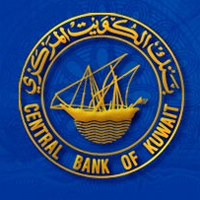KUWAIT: Drastic fall of crude oil prices has brought to the surface enormous difficulties facing Kuwait economic and financial decision-making authorities. Not only so, the hardships have also revealed the efforts exerted to keep ripples of the international financial crisis at bay.
During recent times, when the oil prices were bullish hitting above the 100-point level, the national decisionmaking quarters and strategists were conducting studies and forecasting possible hazards. Much of the international praise for prudence and foresightedness has been heaped upon the Central Bank of Kuwait (CBK) - namely by World Bank (WB), the International Monetary Fund (IMF) and top rating agencies.
The CBK has won international quarters’ confidence and acclamation for maintaining Kuwait financial stability, steadying the monetary policy, as well as the Kuwaiti dinar, the world’s most valuable currency, trading at $3.3.
Standard and Poor’s rating agency, in a report issued on March 16, 2016, hinted that the CBK supervisory policy trimmed hazards facing the Kuwaiti banking sector, also noting amendments, introduced over the past years, on investment and banking regulations.
The CBK measures boosted the banks’ ability to withstand negative repercussions of the sharp drop of oil prices. Standard and Poor’s lowered rating for 10 regional banks, however it maintained a highly positive mark for the National Bank of Kuwait (NBK).
Meanwhile, Moody’s Investors Service noted in a report on March 3rd that impact of Kuwait banking hazards on the State budget is very low noting that the Kuwaiti financial sector has trimmed debts since outbreak of the international financial crisis in 1988.
The Kuwaiti banks are well monitored by the CBK and Kuwait enjoys high credibility in terms of the financial policy, where inflation has dropped after peaking in 2008. Moreover, according to Moody’s, the exchange rating in Kuwait is much more flexible than the financial operations in other GCC countries.
Fitch Rating said in a recent report that the CBK prudent policy has improved capitalization, liquidity and profitability in the Kuwaiti banking sector. The IMF echoed the same views in a report issued on December 2nd, also noting that the banking sector has proven it is capable of withstanding impact of the bearish oil prices.
The international fund reported that irregular loans recorded in the Kuwaiti banking sector amounted to 2.6 percent of the overall loan portfolio, and allocations for covering the loans stood at 172 percent. —KUNA











